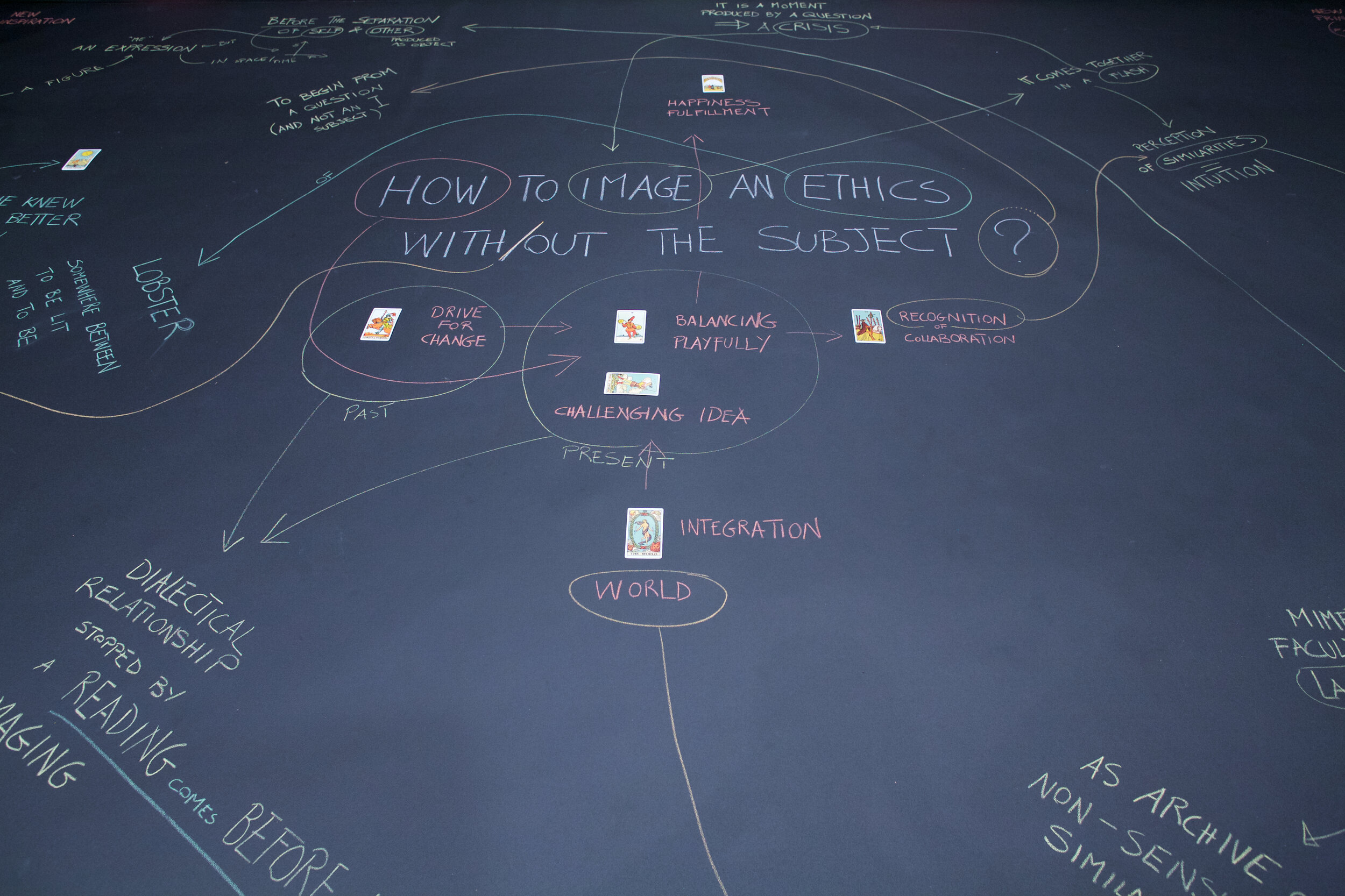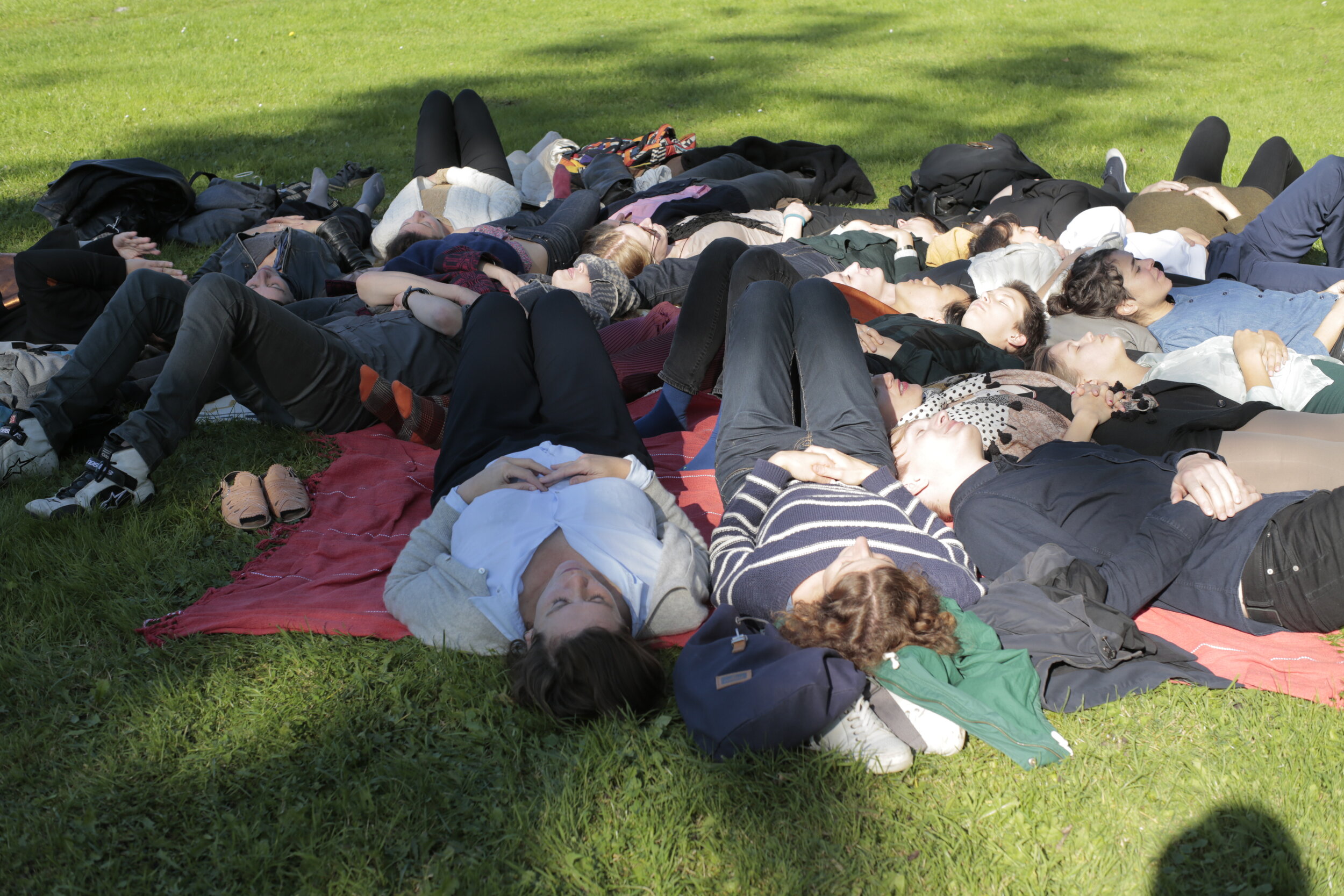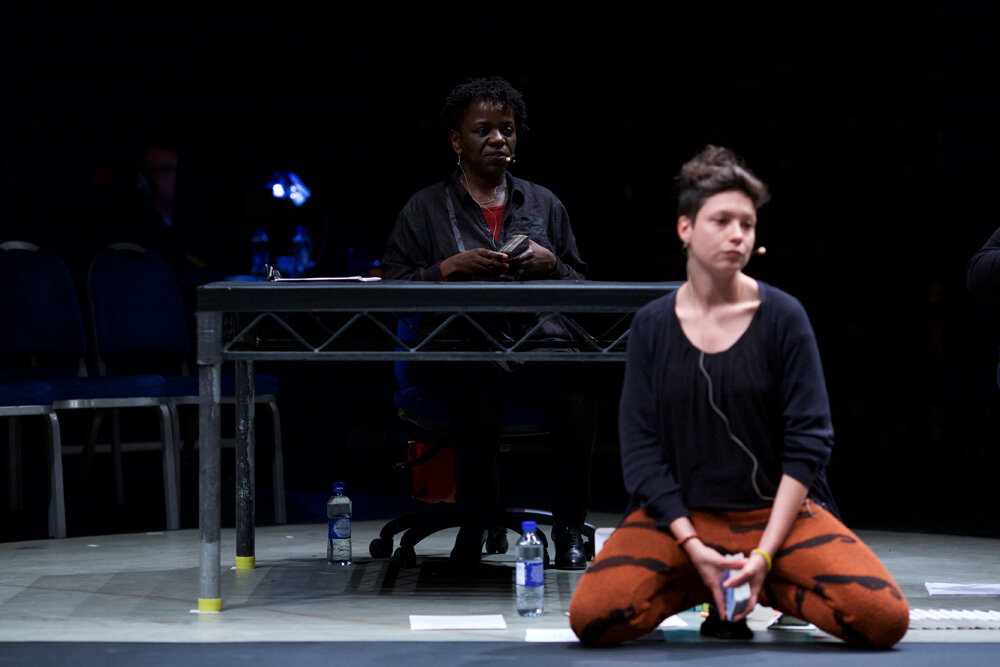
“Would the poet’s intention emancipate the Category of Blackness from the scientific and historical ways of knowing that produced it in the first place, which is also the Black Feminist Critic worksite? Would Blackness emancipated from science and history wonder about another praxis and wander in the World, with the ethical mandate of opening up other ways of knowing and doing? (...) Yes. From without the World, as we know it, where the Category of Blackness exists in/as thought – always already a referent of commodity, an object, and ‘the other,’ as ‘fact’ beyond ‘evidence’ – a Poethics of Blackness would announce a whole range of possibilities for knowing, doing, and existing.”
— Denise Ferreira da Silva, “Black Feminist Poethics - The Quest(ion) of Blackness Towards the End of the World”, 2014
“A poetics can take you only so far without an h. If you’re to embrace complex life on earth, if you can no longer pretend that all things are fundamentally simple or elegant, a poetics thickened by an h launches an exploration of art’s significance as, not just about, a form of living in the real world. That as is not a simile; it’s an ethos. Hence the h. What I’m working on is quite explicitly a poethics of a complex
realism.”
— Joan Retallack, Poethical Wager, 2004
Poethical Readings
What if what we know and how we know played a definitive role in bringing the world to this perilous moment? What if how knowing has framed our existence explains much about recent catastrophic global events – the economic crisis of 2007–08, the refugee crisis, global warming, and now the Covid-19 pandemic? Would it not make sense to consider other ways of knowing and doing, praxis that may guide us as we go about preparing for existing otherwise?
As a contribution to these explorations, poethical readings is an aesthetic praxis that intervenes in the moment of fracturing, when available answers, ways of formulating questions, and guidances for how to deal with a given critical situation prove inadequate, insufficient, or irrelevant.
Although healing is an appropriate term for describing what unfolds in a poethical reading, after a few years of practice, we realized that sensing (as a process, as sense-making) is a better descriptor for what happens during the session, for the how of its unfolding, the process and what it entails. Not in the usual ways. In poethical practice, sensing is not an attempt to identify, classify, and explain what is happening; of finding a more general category, of trying to fit it into it, and then moving on to find out its causes or its consequence. On the contrary, a poethical reading session turns the interpretive process – the movement towards settling and fixing the meaning of something – around. It releases the question from the requirement for a decisive answer or for an accurate interpretation, and trusts that the composition will do its work; that is, figure the question in a way that sutures the emotional break. Healing, as it occurs during a reading, is sense-making. A reading shifts how one thinks and feels about a given situation or process.
Every reading, regardless of the tool used, re/de/composes a critical situation. Each reading, that is, takes the question as a composition. Hence, instead of addressing it as a unit (something that has been submitted and passed the check of identity/equality) and then moving to decide what it is about or interpreting its meanings, the reading decomposes the question into as many components and proceeds to try different sets of re/de/compositions (using all or some of the elements). Every reading, as such, is at once transformative, collaborative, creative, and figurative. Each reading re/de/composes what appears at first to be an emotional or intellectual crossroads into an opening which is also an experiment in existing otherwise. As such, poethical readings as an aesthetic praxis (a knowing and a doing) is an experiment of sensibility as the unknowing of this world as the practice of existing otherwise.















